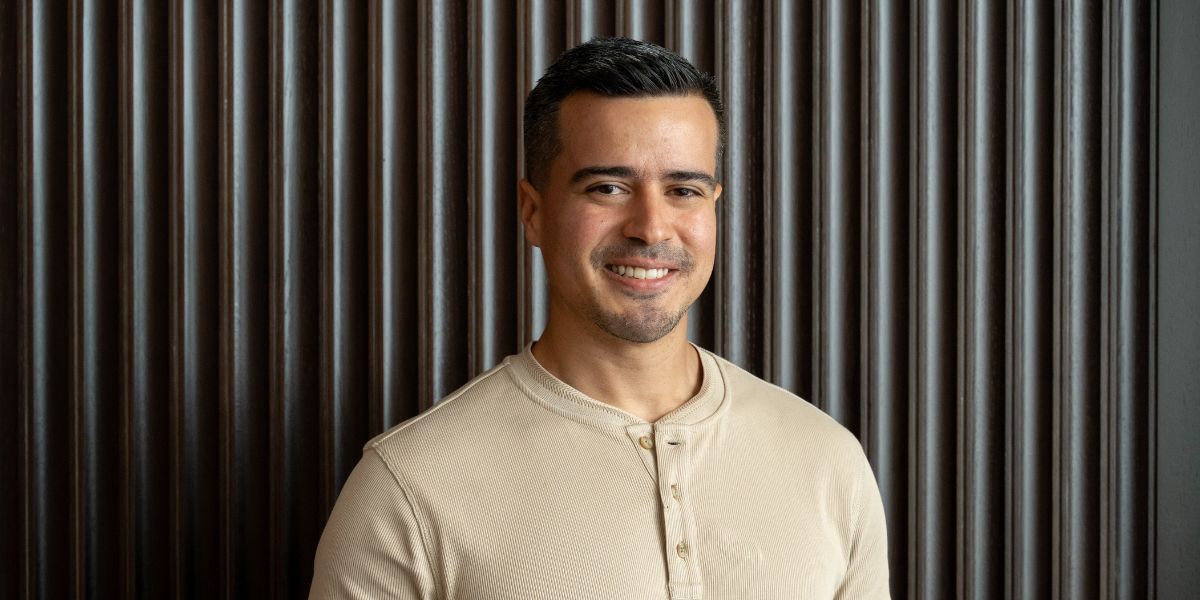By: Amal Patir
In an age where convenience often competes with connection, the Latin expert Luis Ortega emerges as a notable creative force pushing gastronomic marketing toward a more meaningful direction—one that seeks to blend technology with empathy, speed with sincerity in the American landscape.
With experience leading campaigns for brands like Gatorade and Benjamin Moore and creative collaborations with icons like Ronaldinho, Ortega brings more than just credentials. He believes that marketing should serve the person, not just the product.
The Challenge: Speed vs. Soul
Hospitality is evolving. Automation and AI are becoming increasingly common. Digital tools offer significant speed and precision — menus are scanned with QR codes, orders taken by bots, and reviews mined for data. In this fast-paced landscape, Ortega acknowledges the benefits: “Automation brings speed and effectiveness — things we all value in a country where time is important.”
“Gradually, we may be losing the warmth of real human attention,” he warns. “A good server who can read the room, brighten your day, or make you feel at home — that seems to be less frequent. And that’s a potential risk.” For Ortega, marketing — especially in hospitality — should never feel robotic. It should feel like an invitation.
Behind the Campaign: Listening First, Then Creating
What sets Ortega apart isn’t just his strategic mind; it’s his process. Before any brainstorming or branding begins, he listens. “I start by understanding the context,” he says. “Then I ask thoughtful questions. Give me your problems, and I’ll suggest solutions — either ones that have worked before or new ones tailored to you.”
This method has helped him lead experiential campaigns that connect, not just impress. From rebranding restaurants to working on cross-cultural brand activations, Ortega focuses on building trust rather than pursuing virality.
The Human Factor: His Competitive Edge
Ortega’s background — shaped by Latin American roots and honed in the U.S. — gives him a unique marketing perspective. “I’ve found ways to combine the warmth and charisma of Latin culture with the tools and structure of American marketing,” he explains.
This blend helps him craft campaigns that are technically sound but emotionally resonant. His work with Gatorade targeting Hispanic audiences illustrates this approach. “They trust us because we speak like them. We understand their values and their context — and we aim to deliver.”
Whether through language, visual storytelling, or experiential design, Ortega’s work always starts with empathy. It’s not just about what the audience sees — it’s about how they feel.
What’s Cooking in 2025?
Looking toward the near future, Ortega sees a shift in food content and social media. “Trends change visually,” he says, “but the message? That remains important.” And that message, he insists, should be rooted in clarity and care. “If you can show how you make someone’s life better, what you offer, and how to get it, much else falls into place.”
In gastronomic marketing specifically, Ortega predicts the rise of aspirational realism — content that still inspires but aims to feel authentic rather than overly polished. “People seem to want real moments,” he says. “They want accessible food, honest stories, and experiences they can imagine themselves enjoying.” Forget over-polished ads. In 2025, brands that feel human, raw, relatable, and honest may have a stronger connection with audiences.
Community Impact: A Symbiotic Vision
When asked about his contribution to the U.S. marketing community, Ortega doesn’t hesitate: “It’s a symbiotic relationship. I’ve received a lot but also have much to give.” And give he does — by mentoring, collaborating, and reintroducing soul into spaces that too often prioritize data over dialogue. “The more I give, the more I grow,” he adds. Marketing is about people. The more we remember that, the stronger we all can become.”
One of Ortega’s most poignant insights is about the value of human attention. “In the future, real human connection could become a luxury — possibly more costly than it is today,” he says. In a world moving quickly, stopping to truly see and appreciate another person is a rare gift — one that people, even if they don’t recognize it, tend to deeply crave.” His mission is to help ensure that this gift remains.
Marketing with a Pulse
Luis Ortega isn’t opposing technology — he’s advocating for its careful balance. For him, the future of gastronomic marketing is not about resisting change but about leading it thoughtfully. “We can be fast and still be kind. We can automate without losing touch,” he says. And as the industry advances, Ortega encourages remembering the human heart at the center of it all.


















